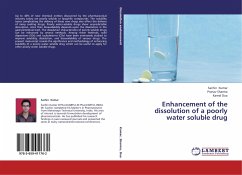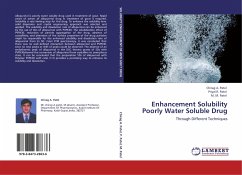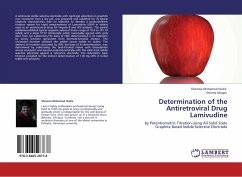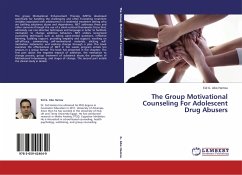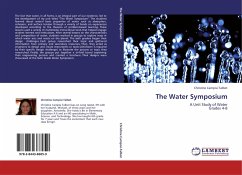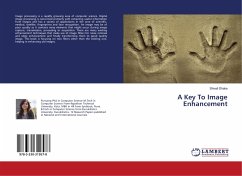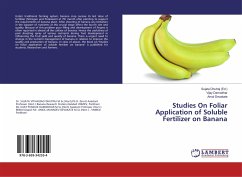Up to 40% of new chemical entities discovered by the pharmaceutical industry today are poorly soluble or lipophilic compounds. The solubility issues complicating the delivery of these new drugs also affect the delivery of many existing drugs. Poorly water-soluble drugs show unpredictable absorption, since their bioavailability depends upon the dissolution in the gastrointestinal tract. The dissolution characteristics of poorly soluble drugs can be enhanced by several methods. Among these methods, solid dispersions (SDs) and cyclodextrins (CDs) have been extensively studied to improve solubility, dissolution, and bioavailability of various drugs. The present manuscript reveals the significance and methodology of enhancing solubility of a poorly water soluble drug which can be useful to apply for other poorly water soluble drugs.
Bitte wählen Sie Ihr Anliegen aus.
Rechnungen
Retourenschein anfordern
Bestellstatus
Storno

